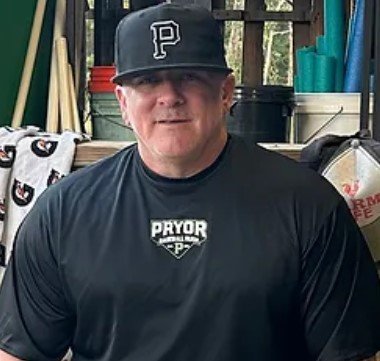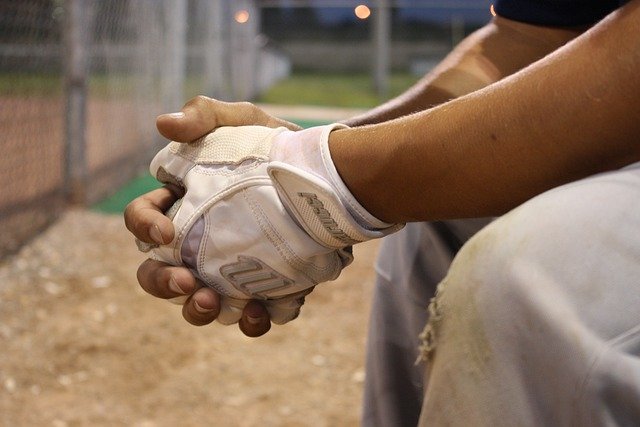Mental Toughness
Mental Toughness
Become a Baseball Machine!
Mental Toughness Training for Baseball Players

By Coach Ryan Pryor
Youth Baseball Training Program
Essential Skills Overview:
Growing Mental Toughness at the Farm
Note: Foundations vary based on Player's Ages. This Post represents the Foundation for 12+ Players preparing to play in Middle and High School or other Competitive Programs. For age specific content, contact Coach Pryor for an evaluation.
Mental Toughness allows a Baseball Player to SLOW the Game Down.
Developing Mental Toughness:
A Baseball Training Program for Young Players

Introduction:
Baseball is not just a physical game; it requires mental strength and resilience to succeed. Developing mental toughness at a young age is essential for young baseball players to overcome challenges, perform under pressure, and reach their full potential. This training program focuses on enhancing mental toughness, concentration, and emotional control. By incorporating these techniques into their training routine, young players can build a strong mental foundation that will positively impact their performance on and off the field.
Week 1: Building a Positive Mindset
Daily Affirmations: Encourage players to start each day with positive affirmations. Have them repeat statements such as "I am confident," "I am focused," or "I am resilient." This practice sets the tone for a positive mindset throughout the day.
Visualization: Teach players to visualize successful performances. Before practice or games, have them close their eyes and imagine executing their skills flawlessly. Visualizing success helps build confidence and enhances mental preparation.
Gratitude Journal: Introduce players to the concept of gratitude by having them write down three things they are grateful for each day. Focusing on gratitude helps shift their mindset to a more positive and resilient perspective.
Week 2: Concentration and Focus
Concentration Drills: Conduct drills that require players to maintain focus for extended periods. For example, have them perform specific tasks while blocking out distractions or count the number of successful throws or catches within a time limit. These drills improve concentration and help players stay focused during games.
Breathing Exercises: Teach players deep breathing techniques to calm their minds and enhance focus. Before each practice or game, have them take a few moments to breathe deeply, inhaling through the nose and exhaling through the mouth. This practice helps center their attention and reduces anxiety.
Mindfulness Practice: Introduce players to mindfulness by incorporating short mindfulness sessions into their routine. Have them sit quietly and focus on their breath or engage in a body scan exercise. Mindfulness enhances present-moment awareness and improves overall focus and mental clarity.
Week 3: Emotional Control and Resilience
Emotional Regulation Techniques: Teach players strategies for managing their emotions during challenging situations. Encourage deep breathing exercises or having a designated safe space where they can take a short break to regain composure. Developing emotional control helps players make rational decisions and stay focused during high-pressure moments.
Failure Resilience Training: Help players develop a healthy perspective on failure. Encourage them to view setbacks as opportunities for growth and learning. Create scenarios in practice where players face obstacles or experience failure, and guide them in reframing those experiences as stepping stones towards improvement.
Positive Self-Talk: Teach players to replace negative self-talk with positive and constructive thoughts. Encourage them to use phrases like "I can do this" or "I am capable of overcoming challenges." Positive self-talk boosts confidence and resilience, helping players bounce back from setbacks.
Week 4: Mental Preparation for Games
Pre-Game Routine: Help players establish a pre-game routine to mentally prepare for competition. This routine may include visualization exercises, positive affirmations, and a structured warm-up. Consistency in pre-game preparation enhances focus and reduces anxiety.
Goal Setting: Guide players in setting specific and achievable goals for each game. These goals can be performance-related or mindset-oriented, such as staying focused, supporting teammates, or maintaining a positive attitude. Goal setting helps players channel their energy and focus on the task at hand.
Post-Game Reflection: Encourage players to reflect on each game, focusing on both positives and areas for improvement. This reflection promotes self-awareness and encourages a growth mindset.
Conclusion:
Developing mental toughness is a key skill that all baseball players should add to their training.
Being Tough on the Field allows you to deal with adversity and pick yourself up and focus regardless of on-field circumstances.
With perseverance and a growth mindset, you have the potential to become an outstanding player and a true asset to your team. Best of luck in your baseball journey!
If you (or your Player) are ready to take their Skills to the Next Level…
Contact Us at:
PryorBaseBallFarm.com/Contact
To Schedule a "Farm Visit" or an Evaluation...
Want to Learn More About other Baseball Training Skills?
The Solution
Finding the Right Coaches and the Right Catching Development Programs are the KEY to Getting it Right from the Get Go!
Schedule an Evaluation with Coach Pryor...
